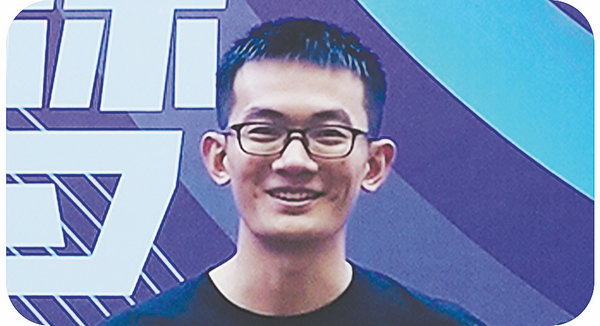

Meanwhile, Li Qing'ang, 22, an undergraduate student in the Department of Mechanical Engineering at Tsinghua University, embarked on a solo research journey. He engineered a wireless passive sensor for orthopedic implants to track the process of post-surgical fracture healing and bone rehabilitation. So far, this invention has been granted three patents.
"Traditional metal implant materials faced challenges such as electrochemical corrosion and mechanical incompatibility," Li said. "However, this novel passive sensor, wirelessly supported by advanced materials and technology, can maintain the mechanical uniformity of the implants and prevent corrosion. This advancement will enhance the operational capabilities and prolong the life span of orthopedic implants."
Li also admitted that the sensor-receiving apparatus he currently uses is still a large, expensive laboratory device. He hopes to create a tiny device in the future that can either receive signals or be transformed into a phone application.
"This will allow patients and doctors to monitor the healing status of the bone in real time on their phones," Li said in excitement as he outlines this aspiration. "I truly enjoyed the process of turning my ideas into tangible, functional products, which is why I chose to study mechanical engineering. I find it fascinating."
The 18th "Challenge Cup" competition showcased the inventiveness of today's youth and attracted more than 2.5 million students from diverse disciplines from over 2,000 colleges nationwide.